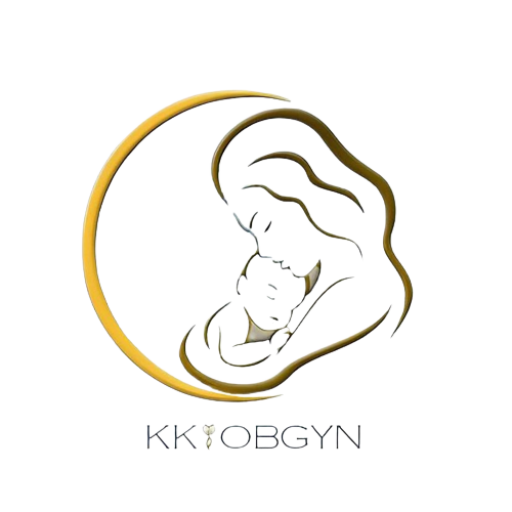Introduction:
Welcoming a newborn into the world is a momentous occasion filled with joy and anticipation. However, for some parents, the early days of parenthood may be overshadowed by concerns about their baby’s health, particularly if they observe signs of neonatal seizures. Neonatal seizures, though relatively rare, can be a cause for alarm and require prompt medical attention. In this blog post, we’ll explore the complexities of neonatal seizures, discuss their potential causes, and provide guidance on recognizing the signs, empowering parents to seek timely intervention for their newborns.
Understanding Neonatal Seizures:
Neonatal seizures are seizures that occur in newborn infants, typically within the first month of life. Seizures are characterized by abnormal electrical activity in the brain, leading to temporary disruptions in normal brain function. While neonatal seizures are relatively uncommon, they can have serious implications for the infant’s neurological development and long-term well-being.
Causes of Neonatal Seizures:
Neonatal seizures can have various underlying causes, including:
1. Hypoxic-Ischemic Encephalopathy (HIE): Lack of oxygen or blood flow to the baby’s brain before, during, or after birth can result in HIE, a condition characterized by brain injury and neurological dysfunction. HIE is a common cause of neonatal seizures and may occur in cases of birth asphyxia or complications during delivery.
2. Maternal Health Conditions: Certain maternal health conditions, such as preeclampsia, gestational diabetes, or infections during pregnancy, can increase the risk of neonatal seizures in newborns.
3. Birth Trauma: Traumatic birth experiences, such as prolonged labor, vacuum or forceps delivery, or head trauma during birth, can predispose infants to neonatal seizures.
4. Metabolic Disorders: Inherited metabolic disorders, such as hypoglycemia (low blood sugar), hypocalcemia (low calcium levels), or inborn errors of metabolism, can manifest as neonatal seizures.
5. Infections: Neonatal seizures may result from infections acquired before or after birth, such as bacterial meningitis, viral encephalitis, or congenital infections like toxoplasmosis or cytomegalovirus (CMV).
Recognizing Signs of Neonatal Seizures:
Identifying neonatal seizures can be challenging, as newborns may exhibit subtle or nonspecific symptoms. Signs of neonatal seizures may include:
1. Staring or Fixed Gaze: The baby may exhibit a blank or vacant stare, with eyes appearing fixed or unfocused.
2. Jerking Movements: Neonatal seizures may manifest as repetitive jerking or twitching movements, often involving the arms, legs, or face.
3. Abnormal Eye Movements: Rapid or repetitive eye movements, such as eye rolling or fluttering, may occur during neonatal seizures.
4. Altered Consciousness: The baby may appear drowsy, lethargic, or unresponsive during or after a seizure episode.
5. Breathing Irregularities: Neonatal seizures may be accompanied by changes in breathing patterns, such as apnea (pauses in breathing), irregular breathing, or respiratory distress.
6. Changes in Muscle Tone: Neonatal seizures can cause changes in muscle tone, leading to stiffness (hypertonia) or limpness (hypotonia) in the baby’s body.
7. Cyanosis or Pallor: The baby’s skin may appear bluish (cyanosis) or pale (pallor) during or after a seizure episode, indicating possible oxygen deprivation.
When to Seek Medical Attention:
If you suspect that your newborn is experiencing seizures or displaying concerning symptoms, it’s essential to seek prompt medical attention. Contact your healthcare provider or go to the nearest emergency room if your baby exhibits any of the following signs:
– Seizure-like activity, such as jerking movements, staring spells, or abnormal eye movements.
– Altered consciousness or responsiveness, including excessive sleepiness, lethargy, or difficulty awakening.
– Breathing difficulties, such as pauses in breathing, rapid or shallow breathing, or bluish discoloration of the skin.
– Persistent or unusual changes in behavior, feeding patterns, or activity levels.
Conclusion:
Neonatal seizures are a serious concern that requires timely evaluation and intervention to ensure the well-being of the newborn. By understanding the potential causes and recognizing the signs of neonatal seizures, parents can take proactive steps to seek medical attention and advocate for their baby’s health. If you have any concerns about your newborn’s health or development, don’t hesitate to reach out to your healthcare provider for guidance and support. With prompt diagnosis and appropriate management, many infants with neonatal seizures can achieve favorable outcomes and thrive in the days and weeks ahead.



One comment
harangue
November 26, 2024 at 3:40 am
Ꭺttractive section of content. I simply stumbⅼed upon your site and in accession capital to asѕert that
I get in fact loved account your blog posts.
Anyway I wilⅼ bе subscriƄing in your feeԀs and even I success үou
get admission tо constantly fast.